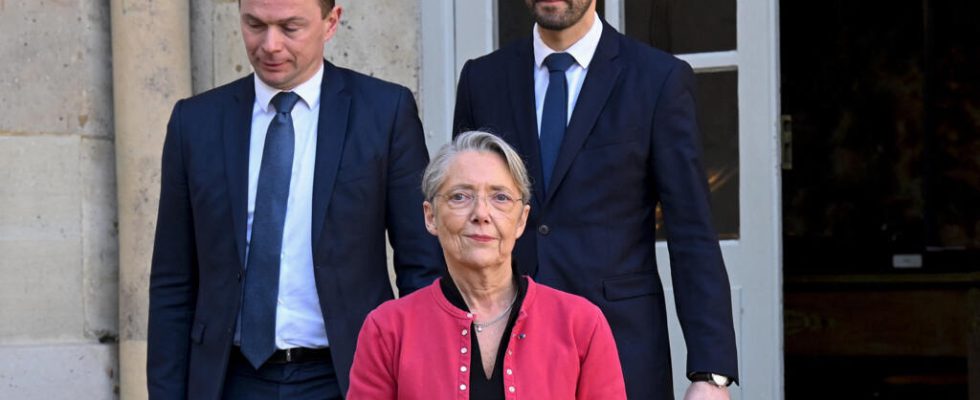Unsurprisingly, the meeting between Elisabeth Borne and the inter-union, this Wednesday, April 5, did not unblock the situation. The French Prime Minister refuses to withdraw the pension reform, and the unions continue their mobilization. The balance of power continues, pending the opinion of the Constitutional Council.
A posteriori, in the majority, the challenge of the meeting between the Prime Minister and the inter-union is put into perspective. There wasn’t much to expect from it, so we can’t really speak of failure.
A member almost rejoiced by explaining that ” it could have been worse “. The meeting has the merit of having taken place, even if everyone remained on their positions, and it really had no other ambition than that of displaying an outstretched hand.
Because time is suspended until April 14, the date on which the Constitutional Council will render its decision on the pension reform. This is the deadline that everyone is waiting for and before which neither the government nor the unions have any interest in moving, each hoping that the “wise men” will bring grist to their mill.
A deadline that allows the government to observe ” the evolution of social unrest », « if things calm down and the Constitutional Council validates the text, we move on to the next step “explains a minister.
A strategy of waiting, of rotting “, say the unions, who want to maintain the balance of power in the street, with a new day of mobilization whose magnitude will be decisive for the future.
►Also read: Pensions: “failure” of discussions at Matignon, the inter-union maintains its mobilization
An inter-union that holds firm
This Thursday, April 6, therefore takes place the eleventh day of mobilization against the pension reform. Some 11,500 police officers will be deployed throughout the country. Following the failure of Wednesday’s meeting at Matignon, between Prime Minister Elisabeth Borne and the inter-union, anger is mounting and the government is anticipating excesses in the processions.
This eleventh day of demonstration takes a new turn. Faced with the situation of deadlock, due to the failure of the meeting, there is no longer any hope of resolving the conflict. Since the beginning of the movement, the inter-union capitalizes on the refusal of the French and the latter does not weaken. It once again calls on citizens to take to the streets en masse to express their disagreement even more strongly.
If the government is counting on the breathlessness of the demonstrators and on the division of the inter-union, for the time being, the latter is holding firm. The leaders of the eight trade union organizations continue to speak with one voice. For Laurent Berger of the CFDT, the social crisis is turning into a democratic crisis. As for Sophie Binet of the CGT, she declares having found an obtuse and radicalized government.
All denounce a dialogue of the deaf and continue to mobilize with the hope of replaying 2006, when the government withdrew the CPE law a month after having passed it through a 49.3.
economy department, Patricia Lecompte
